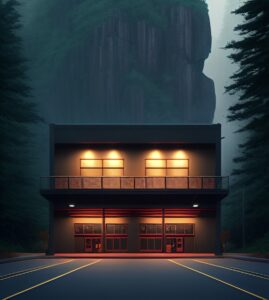Industrial Civilization Needs a Biological Future: “For decades, we have been absolutely deluged by prophecies of doom and dystopia. From the nuclear threat of the Cold War, to the ‘Population Bomb’ of the 1970s, to claims that ‘Peak Oil’ and climate change will render the future a living hell, to the latest worries about artificial intelligence, there has been a constant drumbeat of pessimistic visions of the future. These forecasts regarding material disaster are typically exaggerated, understate the system’s ability for an adaptive response, and have been consistently proven wrong in retrospect. But what is notable is what they imply about our relationship with the future. They assert that the default future is some accelerationist apocalypse or dystopia, and the only way to get a good world is to avoid building, avoid reproducing, and avoid too much vitality. Our agency in these views is only in ceasing to act. It’s no wonder that the decades and demographics dominated by these kinds of visions have also been those that have seen a collapse in fertility.”
Kayfabe: “The Catholic Church has claimed universal and exclusive authority over the souls of Men for centuries and doggedly insisted that it alone possesses ‘the Keys to the Kingdom of Heaven.’ The admission of martyrs from another church, another faith, into the Catholic litany of saints, is a dramatic about face. It is, when you get down to it, an admission from the Church of, ‘well… okay. Sometimes our dogma is wrong actually.’ That’s actually a big deal.”
Our Gnostic Modernity: “Recent theoretical articulations of the concept of Gnosticism have emerged as attempts to conceptualize the crypto-religious, ideological-psychological substrate of contemporary political movements. The significant point here is that the enemy is not merely political or ideological, but spiritual. We face spiritual problems, demanding spiritual answers, which also means something more than a purely theoretical vision. Today the Black Iron Prison is a billion individual prisons. Gnosticism defines the reality of the vast virtual world which is now a force on the earth as an engine of repressive derangement. The theme predates the birth of computing, and the critique of technology: in Plato the power is the power of myth and opinion, and ultimately the reign of the sensible, in contrast to the intelligible. But modern technology has created new layers of epistemological hazard, and materialized them.”
Our Werewolves, Ourselves: “The military used to be the great escape hatch for young men who couldn’t find a place in civil society, but that door’s been slammed shut in recent years as Pentagon bureaucrats push an increasingly strident woke ideology on the rank and file, and the benefits of military service have become increasingly limited when they’re not wholly imaginary; the salary you get as an enlisted man these days won’t keep your family fed and housed, and the Veterans Administration medical system has turned into a sick joke. These days a rapidly growing fraction of the young men from working class backgrounds who used to keep the US military well supplied with recruits are walking away from military service, and they’re doing it with the encouragement of their elders; many of these latter, after all, are military vets who know exactly what the score is.”
The Spirit of de Sade: “…if there is no devil, if there are no demons, if there are no conscious powers of evil seeking entry to our souls through our broken places, the world behaves very strangely—very strangely and precisely—as if there are.”
The True Meaning of Equity: “I’ve said before that the transition from Liberalism to Wokism occurred because the former failed at playing God so it decided to become the Devil. It’s only in hindsight that I recall Lucifer’s origins were always in Heaven to begin with. Easily identifiable by the path of chaos and destruction in its wake wherever it’s appeared; Communism, Progressivism, Wokism, whatever you want to call it is just a multi-generational, decentralized Antichrist.”

Toward a Christian Vitalism: “Men feel trapped and want adventure and beauty and what they see around them offers neither. They want to achieve greatness and yet our egalitarian age demands sameness and cuts down those who show healthy ambition or promise. These young men understandably rage against the bars of the iron prison and seek to destroy it, seeking a better way of life. A return to Dionysian vitalism – a return to the way of Homer and Hercules – offers a way out.”
You Are Not Destined to Live in Quiet Times: “Apocalypse used to be a religious, even a mythological concept. But in our time, it is becoming a political possibility.”
